This is the first of two essays that formed the basis of a presentation given to the Sydney Traditionalist Forum on 15 September 2018 by Prof. Andrew Fraser, as part of the Forum’s “Quarterly Inquiry Series”.
♣
I
Introduction
The Anglo-Saxon Chronicles reported that in the year 793 the people of Northumbria were “wretchedly terrified” by “fierce, foreboding omens” including “excessive whirlwinds, lightning storms, and fiery dragons … flying in the sky”. Such ominous signs preceded not just a famine but the “brutal robbery and slaughter” committed by a band of pagan Vikings upon a monastery on the island of Lindisfarne. The sacking of Lindisfarne inaugurated a tumultuous and terrifying century of piracy and plunder with large areas of England subjected to occupation under Scandinavian kings. Decade after decade, with almost seasonal regularity, Viking marauders pounced at will, pillaging their choice of prime targets along a practically defenceless English coastline.1 Eventually, however, a legendary Anglo-Saxon warrior-king repelled the heathen hordes and, in so doing, created a new people, the newly-christened Anglecynn (meaning “kin of the Angles”).
Alfred (849-899), the fifth and youngest son of pious King Ӕthelwulf, succeeded to the West Saxon throne in 871. His response to the ever-present Viking menace can be captured in one pithy observation: he successfully practiced the virtues of Christian kingship. In so doing, Alfred transformed the petty, squabbling and thoroughly demoralized Anglo-Saxon kingdoms then dividing England into the most successful prototype of a holy nation to be found in medieval Christendom. A proper appreciation of that achievement—to understand why he, uniquely among English monarchs, is styled Alfred the Great—requires the suspension of the easy modern assumption that ideas such as “Christian kingship” and a “holy nation” long ago reached their use-by date.
II
Sacral Kingship in Anglo-Saxon England
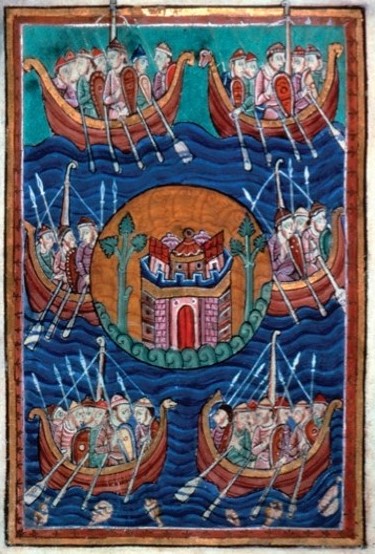 For Alfred and his contemporaries it was axiomatic that God “was intimately involved, even on the smallest scale, in the fate of individuals and nations on a daily basis … If this was a world into which pagan Vikings could suddenly burst forth, then it must be with God’s knowledge,” just as the suffering the pagans had caused throughout the various Anglo-Saxon kingdoms “must have occurred with his blessing”. In other words, “the Vikings themselves were not the problem but merely the symptom of the problem”.2 Alfred, to be sure, did not minimize the military problem posed by the pagan invasions; he spent decades fighting off Viking attacks, not infrequently in hand-to-hand, personal combat. But the warrior-king never lost sight of the real problem: the spiritual void in the hearts of his people. Having turned away from God, Anglo-Saxon England became a veritable moral vacuum into which a satanic scourge rushed like rats toward decaying flesh. Late in life, having established a comparatively peaceable kingdom, he advised his subjects to “Remember what punishments befell us in this world when we ourselves did not cherish learning nor transmit it to other men. We were Christians in name alone, and very few of us possessed Christian virtues”.3 Having “set his mind to the true cause of the pagan plague,” Alfred “then gave all his strength to righting those wrongs”.4 Alfred’s exemplary, indeed heroic reign embodied the perfected Christian telos of an ancestral, Germanic cult of sacral kingship, the foundational myth of Anglo-Saxon peoplehood.
For Alfred and his contemporaries it was axiomatic that God “was intimately involved, even on the smallest scale, in the fate of individuals and nations on a daily basis … If this was a world into which pagan Vikings could suddenly burst forth, then it must be with God’s knowledge,” just as the suffering the pagans had caused throughout the various Anglo-Saxon kingdoms “must have occurred with his blessing”. In other words, “the Vikings themselves were not the problem but merely the symptom of the problem”.2 Alfred, to be sure, did not minimize the military problem posed by the pagan invasions; he spent decades fighting off Viking attacks, not infrequently in hand-to-hand, personal combat. But the warrior-king never lost sight of the real problem: the spiritual void in the hearts of his people. Having turned away from God, Anglo-Saxon England became a veritable moral vacuum into which a satanic scourge rushed like rats toward decaying flesh. Late in life, having established a comparatively peaceable kingdom, he advised his subjects to “Remember what punishments befell us in this world when we ourselves did not cherish learning nor transmit it to other men. We were Christians in name alone, and very few of us possessed Christian virtues”.3 Having “set his mind to the true cause of the pagan plague,” Alfred “then gave all his strength to righting those wrongs”.4 Alfred’s exemplary, indeed heroic reign embodied the perfected Christian telos of an ancestral, Germanic cult of sacral kingship, the foundational myth of Anglo-Saxon peoplehood.
Such myths were the symbolic glue that maintained social order and cohesion in a tribal society. In pagan times, the Anglo-Saxon warrior-king was the intermediary between his people and the gods. Faith, family, and folk were fused together in the sacred body of a king. Kings belonged to a royal lineage claiming descent from a common divine ancestor. Indeed, the Anglo-Saxon word cyning for king originally meant “son of the cyn or family”. Accordingly, a warrior-king combined religious and political functions in a seamless unity. Descended from the gods, a pagan king was heilerfüllt (literally, “filled with the sacred”) and so represented “the charismatic embodiment of the ‘luck’ of the folk”.5 Such a fusion of religious and political authority in the Anglo-Saxon kings facilitated the conversion of their peoples to Christianity. Without royal support, conversion (or in Alfred’s case, Christian regeneration) did not and could not occur. Portraying Christ as the noble Son of God made it easy for Anglo-Saxons to understand his authority in terms analogous to Anglo-Saxon kingship.6 Even the crucifixion of Christ could be assimilated to pagan legends of ritual king-slaying, “portraying a young hero who ascends the tree of the cross to enter into combat with death and, while succumbing, prevails in the end”.7
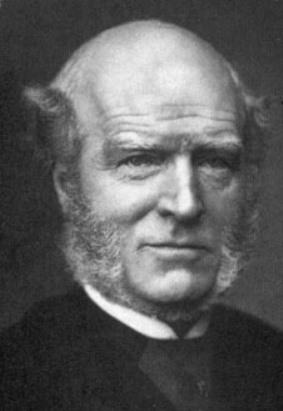
Thomas Hughs (b. 1822 d. 1896)
Like the sacrificial priest-king of ancient Germanic tribes, the Christian tribal king possessed a sacred character. God and king were fused together in Alfred’s biblically suspect claim that Christ had “ordered that everyone should love his lord [hlaford] as He Himself did”.8 Alfred clearly understood that the spiritual fate and political destiny of his people depended upon the influence, ability, and military strength of their king. He saw in the biblical history of Israel confirmation that only kings could “serve as effective war-leaders in maintaining and extending the position of their own people against the encroachments of surrounding tribes with their own hostile and aggressive kings”.9 Such a king was necessarily both warrior and priest.
Well into the nineteenth century, a popular writer such as Thomas Hughes portrayed Alfred the Great as the heroic exemplar of Christianity understood as a fighting faith, someone who recognized that Christ calls his people “as clearly in the drum beating to battle, as in the bell calling to prayer”.10 In Alfred’s kingdom of Wessex, even priests and bishops fought the Vikings alongside the men of their parishes and diocese. Indeed, the good bishop of Sherborne, Bishop Heahmund, died at Alfred’s side during a bloody clash with Viking forces. Alfred’s last remaining brother, King Ӕthelred, was wounded in the same battle and died soon afterwards. As a consequence, Alfred received the crown of Wessex.11
Alfred became a great king because he activated the virtues of all his subjects: those who prayed, those who fought, and those who worked. By embodying in his own person the virtues belonging to each of those three estates, Alfred served as a charismatic channel of grace through which Providence worked to create another holy nation, “a new Chosen People,” known in the vernacular propagated by Alfred, his court and his church as the Angelcynn.12

Prof. Sarah Foot
In each of his roles, as a warrior, as a priest, and as a ruler able to connect with ordinary working people, Alfred set out “to shape the English imagination”. After winning the Viking wars and uniting several Anglo-Saxon kingdoms, he commissioned the Anglo-Saxon Chronicles to persuade the Angelcynn that, while they might “have had multiple early histories,” they “will have one future”. Sarah Foot documents how Alfred taught his subjects that “despite the differences in each [Anglo-Saxon] kingdom’s past history, they all share certain common features and ultimately theirs is a collective history”. In effect, Alfred “invented” an English ethno-nation by “implanting into the minds of his people a personal and cultural feeling of belonging to the Angelcynn, the English kind”.13 The common identity created by Alfred for the Angelcynn was shared not just across old tribal boundaries but among the three estates of the realm as a whole. The Angelcynn nation created by Alfred in response to the Viking invasions embodied a trifunctional social order, “invoking a concept of Englishness particularly dependent on the Christian faith”.14 Not surprisingly, therefore, the ethnogenesis of the Angelcynn, understood from the inside as a lived experience, can be likened to a collective process of “deification” or “theosis”.15 The complex unity of the distinctively tripartite social order characteristic of that novel “imagined community”16 had much in common with the theological mysteries of the triune God.
III
Alfred’s Trinitarian Vision of Christian Nationhood
Alfred was intensely aware of the divinely-ordained responsibilities of Christian rulership. But he also acknowledged explicitly that a king cannot “get full play for his natural gifts, nor conduct and administer government unless he has fit tools and the raw material to work upon”. Without “a well-peopled land” comprised of virtuous, diligent, intelligent “men of prayer, men of war, and men of work,” a king “cannot perform any of the tasks entrusted to him”.17 Throughout his reign, Alfred sought to ensure that the royal administration worked to provide the conditions essential to the optimal performance of the tasks entrusted to each of the three estates. A major long-term priority, of course, was the re-organization of the defence of the realm.18 But in the short term, on Twelfth Night 878, humiliating defeat at the hands of the Viking king Guthrum put the very existence of Alfred’s realm into question. To recover and regenerate his kingdom Alfred was compelled to find new ways to facilitate co-operation and co-ordination between those who fought, those who prayed, and those who worked.
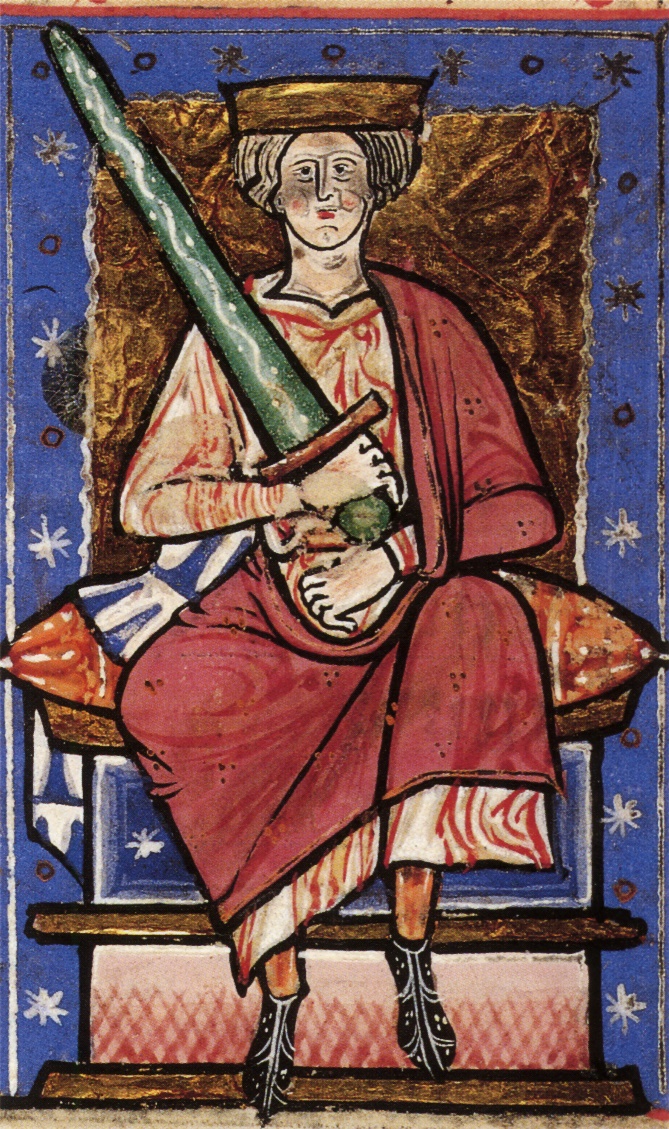
King Ethelred the Unready (b. 968 d. 1016)
But, first, Alfred had to recover the heil he had lost, having being driven into the swamps of Somerset. There he fortified a small camp on the island of Athelney, from which he waged sporadic guerrilla war for several months. Alfred demonstrated his inspirational qualities as a leader of men in the most adverse circumstances. With consummate skill, he raised an underground militia which soundly defeated Guthrum at the battle of Edington. That famous victory revealed not just Alfred’s prowess as a warrior but also his ability to project an image as a man of the people.
The once-famous tale of Alfred and the cakes conveys something of the populist charisma generated by the fugitive king’s sojourn in the swampy wilderness.19 According to this popular medieval legend, Alfred was wandering incognito through the wilderness one day when he happened upon a poor swineherd’s hut. He sought refuge there for the night. The next morning a peasant’s wife was busy outside while Alfred sat by the fire fletching arrows. Preoccupied with his own affairs, Alfred neglected to notice when the cakes the woman had left to bake began to burn. After a severe scolding by the wife, Alfred became the perfect household guest, dutifully helping with the chores for the remainder of his stay.
In the medieval English popular imagination, the story symbolized the manner in which Alfred had let his political cakes burn during the early years of his reign, utterly failing to build up the kingdom’s defences against the Vikings.20 In this wider context, it was the severe scolding that Alfred received from his people after the Twelfth Night disaster that awakened him to the dimensions of the disaster facing his kingdom. According to Thomas Hughes, the special function of a king is to demonstrate “sympathy for the masses”. Alfred snatched victory from the jaws of defeat only by rallying swineherds, peasant, and artisans to his side while hiding in the wilderness. As Hughes puts it, he came to understand that if “all people are to bow before the king, all nations to do him service, it is because ‘he shall deliver the poor when he crieth, the needy also, and him that has no helper’”.21
In the aftermath of the triumphant battle of Edington, Alfred’s actions revealed that he was a king for those who prayed as well as for those who fought and those who worked. Alfred had Guthrum and his defeated followers at his mercy. In accordance with the Vikings’ own practice, Alfred could have had his captives killed or sold into slavery. Instead, he allowed Guthrum and his warriors safe passage out of Wessex on condition that they be baptized. Guthrum accepted the condition and departed Wessex to rule thereafter (under his baptismal name of Ӕthelstan) over East Anglia and Mercia as a Christian king, faithfully keeping the peace with Alfred.22
IV
Conclusion
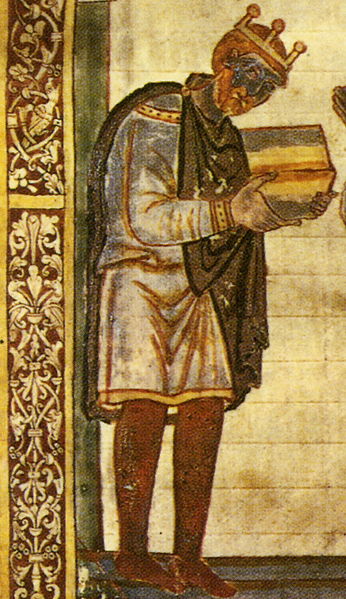
King Aethelstan (b. 894 d. 939)
For his own part, Alfred worked thereafter to provide innovative, often radical cures for the spiritual degeneration which had loosed God’s wrath upon the Anglo-Saxon kingdoms of yesteryear. He continued to strengthen the defences of his kingdom. Toward the end of his life, he launched “a programme of educational revival and reform to encourage among his subjects an idea of their single past history”.23 In many other ways, he worked to improve the material and moral, cultural and spiritual conditions of the Angelcynn. One measure of our own sad spiritual state is that few deracinated Anglican WASPs (whether Australian or Canadian, English or American) appear ever to have heard of Alfred the Great. Fewer still venerate him as the patron saint of their once great national church (or Volkskirche as Germans might style it). Sadly, those modern descendants of the Angelcynn stranded in the spiritual swamps of our distinctly unholy nations themselves stand ever more sorely in need of a Christian king ready, willing, and able to fight for faith, family, and folk.
 Andrew Fraser was born, raised, and educated in Canada and the United States of America. He taught constitutional law and legal history for many years at Macquarie University, Sydney Australia and is the author of The WASP Question, an inquiry into Anglo-Saxon identity in the context of the modern, globalising world. His Dissident Dispatches is based on his recent experience earning a Bachelor of Theology degree from Charles Sturt University.
Andrew Fraser was born, raised, and educated in Canada and the United States of America. He taught constitutional law and legal history for many years at Macquarie University, Sydney Australia and is the author of The WASP Question, an inquiry into Anglo-Saxon identity in the context of the modern, globalising world. His Dissident Dispatches is based on his recent experience earning a Bachelor of Theology degree from Charles Sturt University.
Endnotes:
- Savage ed., The Anglo-Saxon Chronicles (London: Guild Publishing, 1983) 75.
- Justin Pollard, Alfred the Great: The Man Who Made England (London: John Murray, 2006), 233, 231.
- Keynes and M. Lapidge, trans., “From the Translation of Gregory’s Pastoral Care” in Alfred the Great: Asser’s Life of Alfred and the Contemporary Sources (Harmondsworth: Penguin, 1983), 125.
- Benjamin Merkle, The White Horse King: The Life of Alfred the Great (Nashville, TN: Thomas Nelson, 2009), 207.
- William A. Chaney, The Cult of Kingship in Anglo-Saxon England: The Transition from Paganism to Christianity (Berkeley: University of California Press, 1970), 14-21, 7, 34, 12.
- Ibid., 167, 46, 19.
- James C. Russell, The Germanization of Early Medieval Christianity (New York: Oxford University Press, 1994), 170. The portrayal of Christ as a Germanic warrior-king found epic expression in Heliand, the Old Saxon gospel written only ten to twenty years before Alfred’s birth. See, G. Ronald Murphy, S.J., The Saxon Savior: The Germanic Transformation of the Gospel in the Ninth-Century Heliand (New York: Oxford University Press, 1989), and Idem., The Heliand: The Saxon Gospel. A Translation and Commentary (New York: Oxford University Press, 1992).
- Chaney, Cult of Kingship, 185, 195.
- Judith McClure, “Bede’s Old Testament Kings” in Patrick Wormald ed., Ideal and Reality in Frankish and Anglo-Saxon Society (Oxford: Basil Blackwell, 1983), 87.
- Thomas Hughes, M.P., Alfred the Great (London: R. Clay & Sons, 1869), 70.
- Merkle, White Horse King, 68-71.
- Sarah Foot, “The Making of Angelcynn: English Identity Before the Norman Conquest,” (1996) 6 Transactions of the Royal Historical Society 25, at 32. George Molyneaux contends the Patrick Wormald, Judith McClure, and other scholars misinterpret Alfred. It is wrong, according to Molyeaux, to put the words “new Chosen People” in Alfred’s mouth. In the king’s writings, he says, “the English are…treated as but one of numerous gentile nations: nothing is said to imply that their position in relation to God or Israel was different from that” of any other people converted to Christianity. Perhaps Alfred was merely modest, too humble to recognize just how path-breaking—even unique—the Angelcynn experience was to be perceived in the eyes of posterity (before it vanished down the memory hole in the self-understanding of contemporary Anglicanism)? See, George Molyneaux, “Did the English Really Think They Were God’s Elect in the Anglo-Saxon Period?” (2014) 65(4) Journal of Ecclesiastical History 721, at 735. Cf., Simon Keynes, “The Cult of Alfred the Great,” (1999) 28 Anglo-Saxon England
- Foot, “Making the Angelcynn,” 35-36.
- Ibid., 37.
- Cf., Veli-Matti Kӓrkkӓinen, One with God: Salvation as Deification and Justification (Collegeville, MN: Liturgical Press, 2004).
- Benedict Anderson, Imagined Communities: Reflections on the Origin and Spread of Nationalism (London: Verso, 1991).
- Richard Abels, Alfred the Great: War, Kingship and Culture in Anglo-Saxon England (London: Longman, 1998), 259.
- Ibid., 194-218.
- David Horspool, Why Alfred Burned the Cakes: A King and His Eleven-Hundred-Year Afterlife (London: Profile Books, 2007).
- Pollard, Man Who Made England, 177-178.
- Hughes, Alfred the Great, 11.
- One scholar remarks “that among Scandinavian settlers abroad conversion was something that ‘just happened’ in the process of assimilation to a host culture” such as Anglo-Saxon England. This might be taken to suggest that Guthrum’s baptism was a matter of slight significance, that Guthrum wasn’t really likely to have been a hard-core pagan. On the other hand, his faithfulness to the baptismal oath may suggest a recognition on his part of the victorious Alfred’s heilerfüllt See, Richard Fletcher, The Barbarian Conversion: From Paganism to Christianity (Berkeley: University of California Press, 1999), 416.
- Foot, “Making the Angelcynn,” 33.
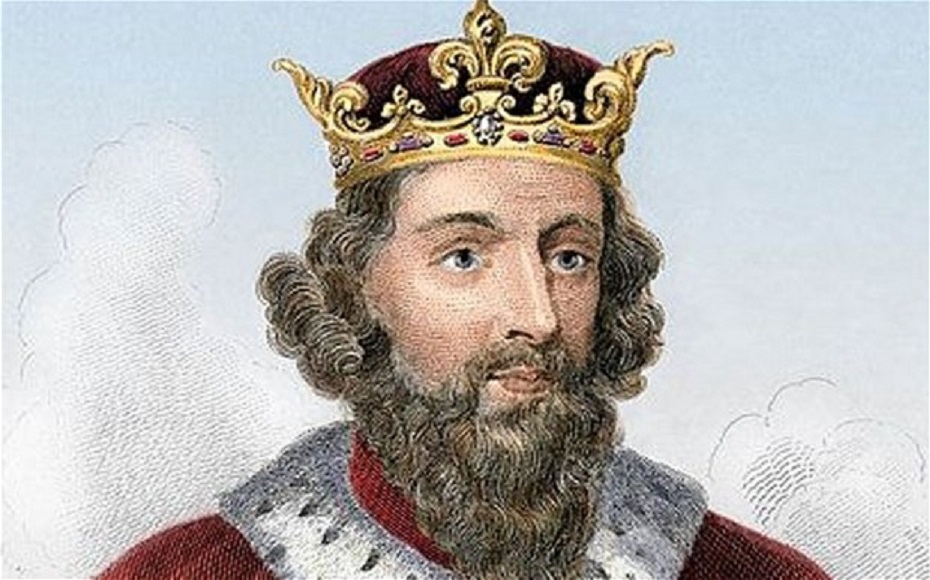

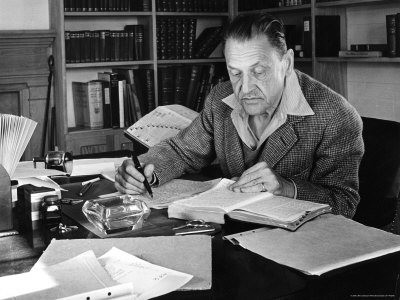

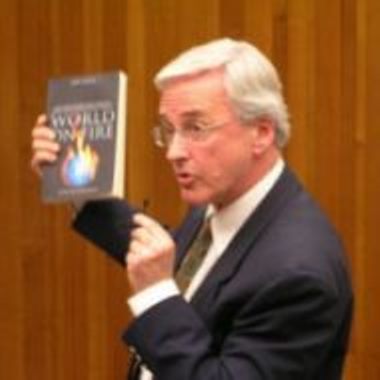
Leave a comment